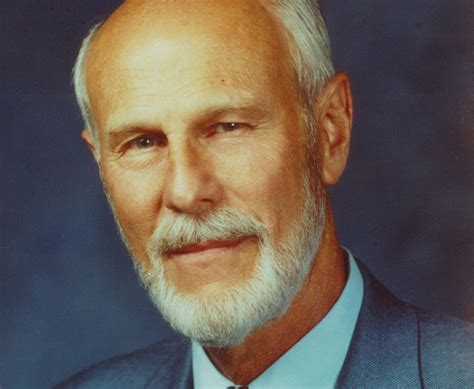A Quote by R. C. Sproul
A god who is all love, all grace, all mercy, no sovereignty, no justice, no holiness, and no wrath is an idol.
Related Quotes
Wrath, unlike love, is not one of the intrinsic perfections of God. Rather, it is a function of God's holiness against sin. Where there is no sin, there is no wrath-but there will always be love in God. Where God in His holiness confronts His image-bearers in their rebellion, there must be wrath, or God is not the jealous God He claims to be, and His holiness is impugned. The price of diluting God's wrath is diminishing God's holiness.
When God is our Holy Father, sovereignty, holiness, omniscience, and immutability do not terrify us; they leave us full of awe and gratitude. Sovereignty is only tyrannical if it is unbounded by goodness; holiness is only terrifying if it is untempered by grace; omniscience is only taunting if it is unaccompanied by mercy; and immutability is only torturous if there is no guarantee of goodwill.
What is sin? It is the glory of God not honored. The holiness of God not reverenced. The greatness of God not admired. The power of God not praised. The truth of God not sought. The wisdom of God not esteemed. The beauty of God not treasured. The goodness of God not savored. The faithfulness of God not trusted. The commandments of God not obeyed. The justice of God not respected. The wrath of God not feared. The grace of God not cherished. The presence of God not prized. The person of God not loved. That is sin.
Although the sovereignty of God is universal and absolute, it is not the sovereignty of blind power. It is coupled with infinite wisdom, holiness and love. And this doctrine, when properly understood, is a most comforting and reassuring one. Who would not prefer to have his affairs in the hands of a God of infinite power, wisdom, holiness and love, rather than to have them left to fate, or chance, or irrevocable natural law, or to short-sighted and perverted self? Those who reject God's sovereignty should consider what alternatives they have left.
If a person has grasped the meaning of God's grace in his heart, he will do justice. If he doesn't live justly, then he may say with his lips that he is grateful for God's grace, but in his heart he is far from him. If he doesn't care about the poor, it reveals that at best he doesn't understand the grace he has experienced, and at worst he has not really encountered the saving mercy of God. Grace should make you just.
We desperately need to understand something of the magnitude of sin, of evil, and of gross wickedness in this world if we are to appreciate our redemption. God's love, grace, and mercy shine all the brighter against the awful reality of evil. Indeed, the very existence of evil is a powerful proof of God's existence and holiness.
Pardon me, O perfections of my God, for having preferred imperfect and evil inclinations to Thee! Pardon me, O justice of my God, for having outraged Thee by my sins. Pardon me, O holiness of my God, for having so long stained Thy sight's purity by my sins. Pardon me, O mercy of my God, for having despised so long Thy mercy's voice. In deep sorrow and contrition, I cast myself at Thy feet: Have mercy on me.
Loving a holy God is beyond our moral power. The only kind of God we can love by our sinful nature is an unholy god, an idol made by our own hands. Unless we are born of the Spirit of God, unless God sheds His holy love in our hearts, unless He stoops in His grace to change our hearts, we will not love Him... To love a holy God requires grace, grace strong enough to pierce our hardened hearts and awaken our moribund souls.
A day of grace is yet held out to us. Both North and South have been guilty before God; and the Christian Church has a heavy account to answer. Not by combining together, to protest injustice and cruelty, and making a common capital of sin, is this Union to be saved-but by repentance, justice and mercy; for, not surer is the eternal law by which the millstone sinks in the ocean, than that stronger law, by which injustice and cruelty shall bring on nations the wrath of Almighty God.
For indeed, grace is the key to it all. It is not our lavish good deeds that procure salvation, but God's lavish love and mercy. That is why the poor are as acceptable before God as the rich. It is the generosity of God, the freeness of his salvation, that lays the foundation for the society of justice for all. Even in the seemingly boring rules and regulations of tabernacle rituals, we see that God cares about the poor, that his laws make provision for the disadvantaged. God's concern for justice permeated every part of Israel's life. It should also permeate our lives.

































